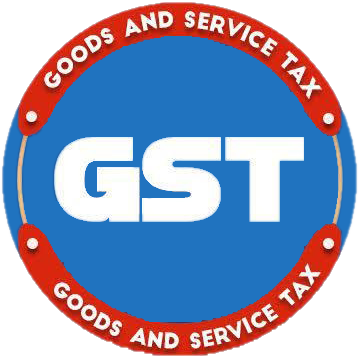GST Registration for Home-Based Businesses: A Comprehensive Guide
Introduction:
Running a Home-Based Business can be a rewarding venture, allowing you to pursue your passion and manage your work-life balance. However, when it comes to GST (Goods and Services Tax) registration, you might have questions about its applicability to home-based businesses. This comprehensive guide aims to provide you with a clear understanding of GST registration for home-based businesses, its benefits, the registration process, required documents, and frequently asked questions.

Apply Now GST Registration for Home-Based Businesses ( ⭐⭐⭐⭐⭐ 4.5 / 5 Rating Service | ✅ Hassle Free Documentation | ✅ Best Customer Support | ✅ Lowest Cost | ✅ Online Verified Process )
Understanding GST Registration for Home-Based Businesses:
1. What is GST?
GST is an indirect tax imposed on the supply of goods and services in India. It replaced several indirect taxes, such as VAT, service tax, and excise duty, streamlining the taxation system.
2. Is GST Registration Mandatory for Home-Based Businesses?
GST registration is mandatory for businesses meeting specific criteria. As a home-based business, you need to assess your eligibility based on turnover, nature of goods/services, and location.
3. Benefits of GST Registration for Home-Based Businesses:
- Legitimacy and Credibility: GST registration lends legitimacy to your home-based business, enhancing trust and credibility among customers and partners.
- Input Tax Credit (ITC): By registering under GST, you become eligible to claim input tax credit on the GST paid on purchases made for your business, resulting in cost savings.
- Expanding Business Reach: GST registration allows you to participate in inter-state trade, opening doors to a wider customer base and business opportunities.
Eligibility Criteria for GST Registration:
1. Threshold Limit for GST Registration: For businesses operating within a single state, GST registration is mandatory if the annual turnover exceeds the prescribed threshold limit. The threshold limits are subject to change, and it is crucial to stay updated with the latest regulations.
2. Voluntary GST Registration for Home-Based Businesses: Even if your turnover is below the mandatory threshold, you can opt for voluntary GST registration. This can provide benefits such as claiming ITC and showcasing credibility to potential customers and business partners.
3. Mandatory GST Registration for Home-Based Businesses: Certain situations mandate GST registration, regardless of the turnover. These include businesses engaged in inter-state trade, businesses registered under other laws (such as excise or service tax), and businesses selling through e-commerce platforms.
GST Registration Process for Home-Based Businesses:
1. Online GST Registration: GST registration can be done through the GST portal (www.gst.gov.in), which provides a user-friendly interface for the registration process.
2. Steps for GST Registration:
- Visit the GST portal and click on “New Registration.”
- Fill in the required details, including PAN, email address, and mobile number.
- Complete the verification process through OTP (One-Time Password) and receive a Temporary Reference Number (TRN).
- Log in to the GST portal using the TRN and fill in the remaining details.
- Upload the required documents, such as identity proof, address proof, and business registration documents.
- Submit the application and await approval from the GST authorities.
- Once approved, you will receive your GST registration certificate.
3. Common Challenges and Solutions during GST Registration:
- Document Preparation: Ensure you have the necessary documents ready before starting the registration process to avoid delays.
- Technical Issues: In case of technical difficulties on the GST portal, seek assistance from the GST helpdesk or consult a tax professional.
- Compliance Requirements: Stay updated with the GST regulations and comply with filing returns, maintaining records, and fulfilling other compliance requirements.
Apply Now GST Registration for Home-Based Businesses ( ⭐⭐⭐⭐⭐ 4.5 / 5 Rating Service | ✅ Hassle Free Documentation | ✅ Best Customer Support | ✅ Lowest Cost | ✅ Online Verified Process )
Documents Required for GST Registration:
1. Identity Proof and Address Proof:
- PAN card of the business owner/partner/director
- Aadhaar card or voter ID card
- Passport-size photograph
2. Proof of Business Place:
- Rent agreement or ownership documents for the business premises
- Utility bills (electricity bill, water bill, etc.) in the name of the business owner
3. Bank Account Details:
- Cancelled cheque or bank statement reflecting the name, address, and IFSC code
4. Business Incorporation Documents:
- Partnership deed, Memorandum of Association (MOA), Articles of Association (AOA), or LLP agreement, depending on the business structure
5. Other Supporting Documents:
- Digital signature certificate (optional but recommended)
- Letter of authorization (if the authorized signatory is not the business owner)
FAQs
1. Is GST Registration required for small home-based businesses?
GST registration is mandatory if your turnover exceeds the threshold limit set by the GST authorities. However, voluntary registration is also an option to avail of the benefits of GST and enhance your business credibility.
2. Can I claim input tax credit (ITC) if I am registered under GST?
Yes, as a registered business, you can claim input tax credit on the GST paid on your purchases. This helps reduce your overall tax liability and boosts your business’s financial viability.
3. What are the consequences of not registering for GST?
Failure to register for GST when required can lead to penalties, fines, and legal consequences. It may also limit your business’s growth potential by restricting access to inter-state trade and government contracts.
4. Can I avail the composition scheme as a home-based business?
The composition scheme is available for businesses with a turnover below a specified threshold. However, certain businesses, such as service providers, are not eligible for the composition scheme. Assess your eligibility and consult a tax professional for guidance.
Conclusion:
GST registration for home-based businesses can provide numerous benefits, including credibility, input tax credit, and access to a wider market. Assess your eligibility based on turnover and other criteria, follow the registration process diligently, and ensure you have the required documents ready. GST compliance is essential for the success and growth of your home-based business.

